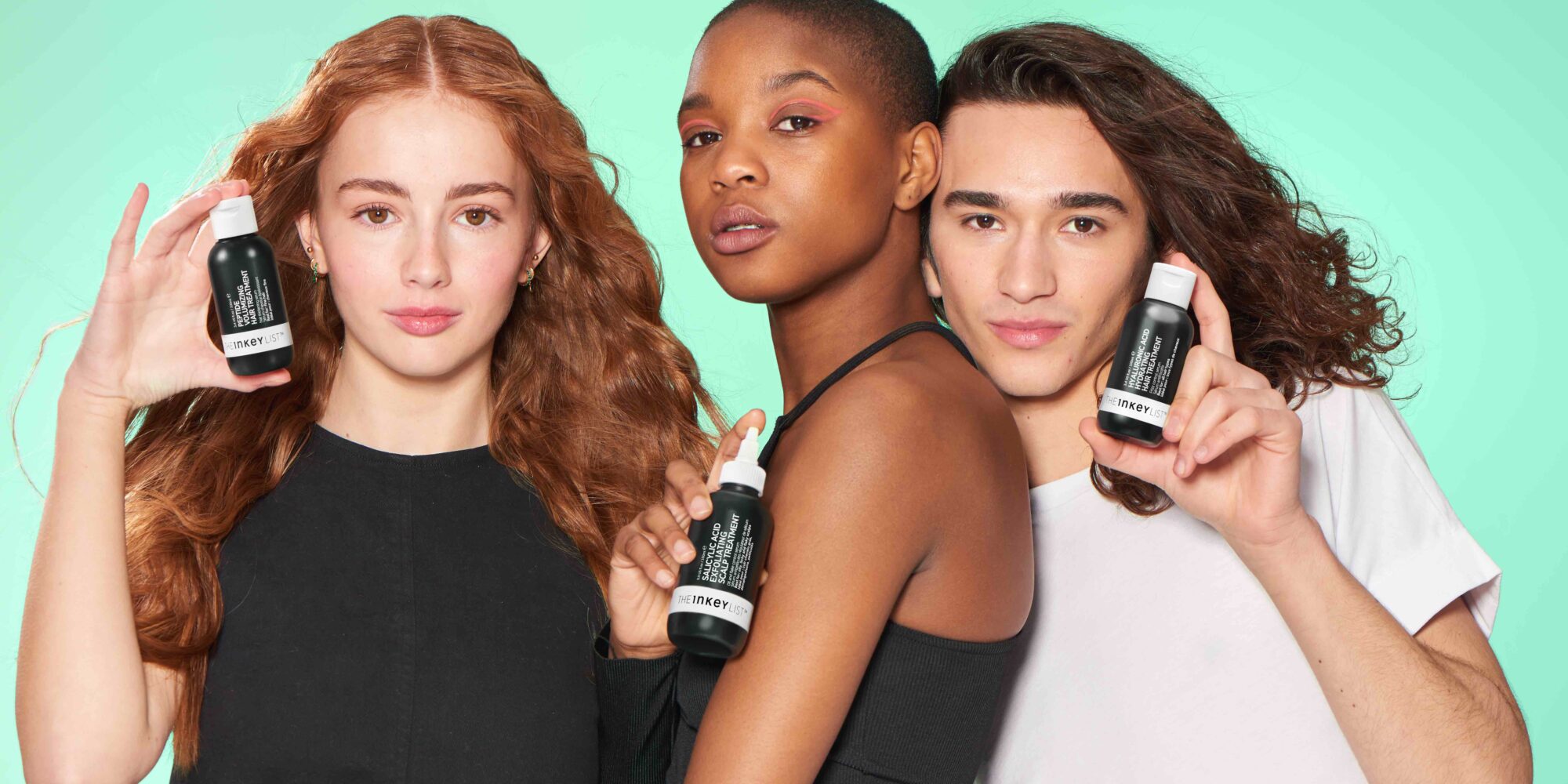
The Inkey List Launches Hair And Scalp Treatments At Sephora As “Hairtellectuals” Emerge As A Key Consumer Group
Will “hairtellectuals” be the next major consumer force in the beauty industry?
The Inkey List and Sephora think they could be. Two years ago, the brand beloved by “skintellectuals” extended from skincare to haircare on its website with hair and scalp treatments and, as of Feb. 15, five of the treatments—Caffeine Stimulating Scalp Treatment, Hyaluronic Acid Hydrating Hair Treatment, PCA Bond Repair Hair Treatment Peptide Volumizing Hair Treatment and Salicylic Acid Exfoliating Scalp Treatment—will be sold via e-commerce at Sephora. The beauty specialty retailer will go live Tuesday with product pages for the items to publicize their arrival for shoppers eager to place them in their online carts.
“Skincare junkies took a while to be at the level they are at today, which is a small amount of people super ginned up to a high level of detail, and the masses understanding the secret sauce of what ingredients are good on your skin,” says Mark Curry, who founded The Inkey List with Colette Laxton. For the brand’s hair and scalp treatments, he continues, “We didn’t want to go too out there in terms of the ingredients. We stuck to common ingredients that people have heard about in skincare and took those across to a haircare setting. It’s very deliberate in that it’s the headline of the ingredient that comes across, but the complexities of how we formulate is very different in hair versus skin.”
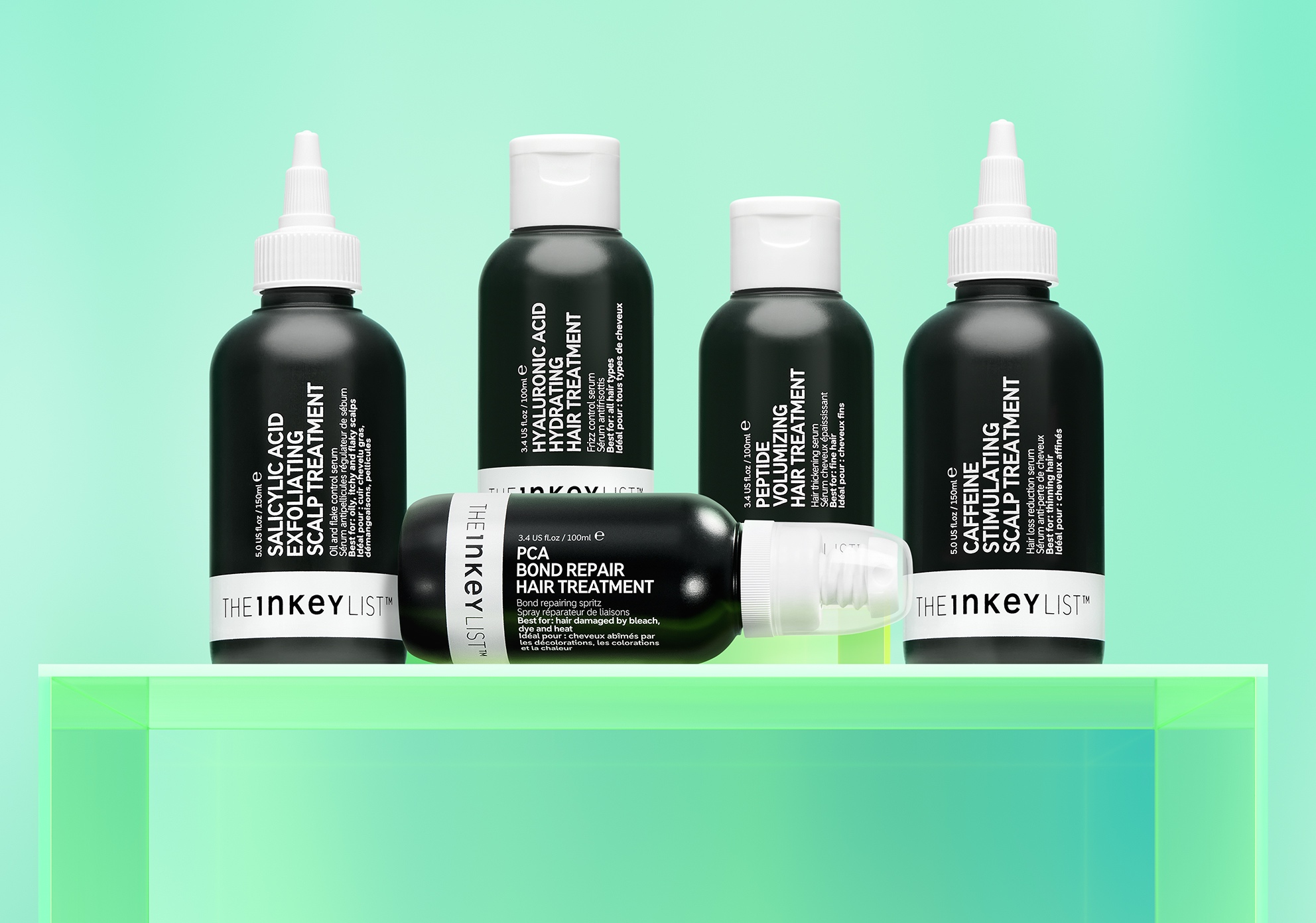
Laxton chimes in that The Inkey List never intended to stick to a single category. Instead, she says it’s driven to address beauty categories rife with confusion it can moderate by creating affordable products centered on transformative ingredients. Although The Inkey List is increasing prices slightly because of supply chain and inflationary pressures, it’s committed to all its products being priced at $15 or under. With its haircare category entrance, Laxton says, “It’s about helping people understand the scalp and the impact it has on your hair. Sephora is excited to partner with us because we’re not a stylist. We are putting education and knowledge at the forefront.”
The Inkey List’s approach to hair and scalp products appears to be working. When TikTokers glommed on to hyaluronic acid as a haircare ingredient last year, hair and scalp treatments soared to around 20% of the brand’s direct-to-consumer sales in the United States. Curry believes that haircare could account for as much as a third of The Inkey List’s sales in the future. The brand is definitely not done building its haircare repertoire.
“Sephora is excited to partner with us because we’re not a stylist. We are putting education and knowledge at the forefront.”
Three of The Inkey List’s hair and scalp products aren’t being carried by Sephora, at least for now—Glycolic Acid Exfoliating Scalp Scrub, Chia Seed Curl Defining Hair Treatment and Shea Oil Nourishing Hair Treatment—and further scalp products are in the brand’s pipeline. “We love our positioning with scalp, so I think we will always be scalp heavy,” says Laxton. “I don’t think we have plans to go into more commodity items like shampoo and conditioner. For us, it’s more about the treatment side.”
Distribution-wise, The Inkey List stepped into e-tail with its hair and scalp treatments last year by introducing them exclusively in the United Kingdom, where the brand is based, at Cult Beauty. Laxton says Cult Beauty co-CEO and co-founder Alexia Inge “had been talking a lot about the ‘skinification’ of hair. She leaned into this new wave of consumer that really wants to understand the scalp and their hair versus this product makes your hair glossy.” Sephora has been ramping up its haircare selection of late, and K18 and Crown Affair proceed The Inkey List with haircare debuts at the retailer. The Inkey List started in 2018 and originally broke into Sephora in 2019.
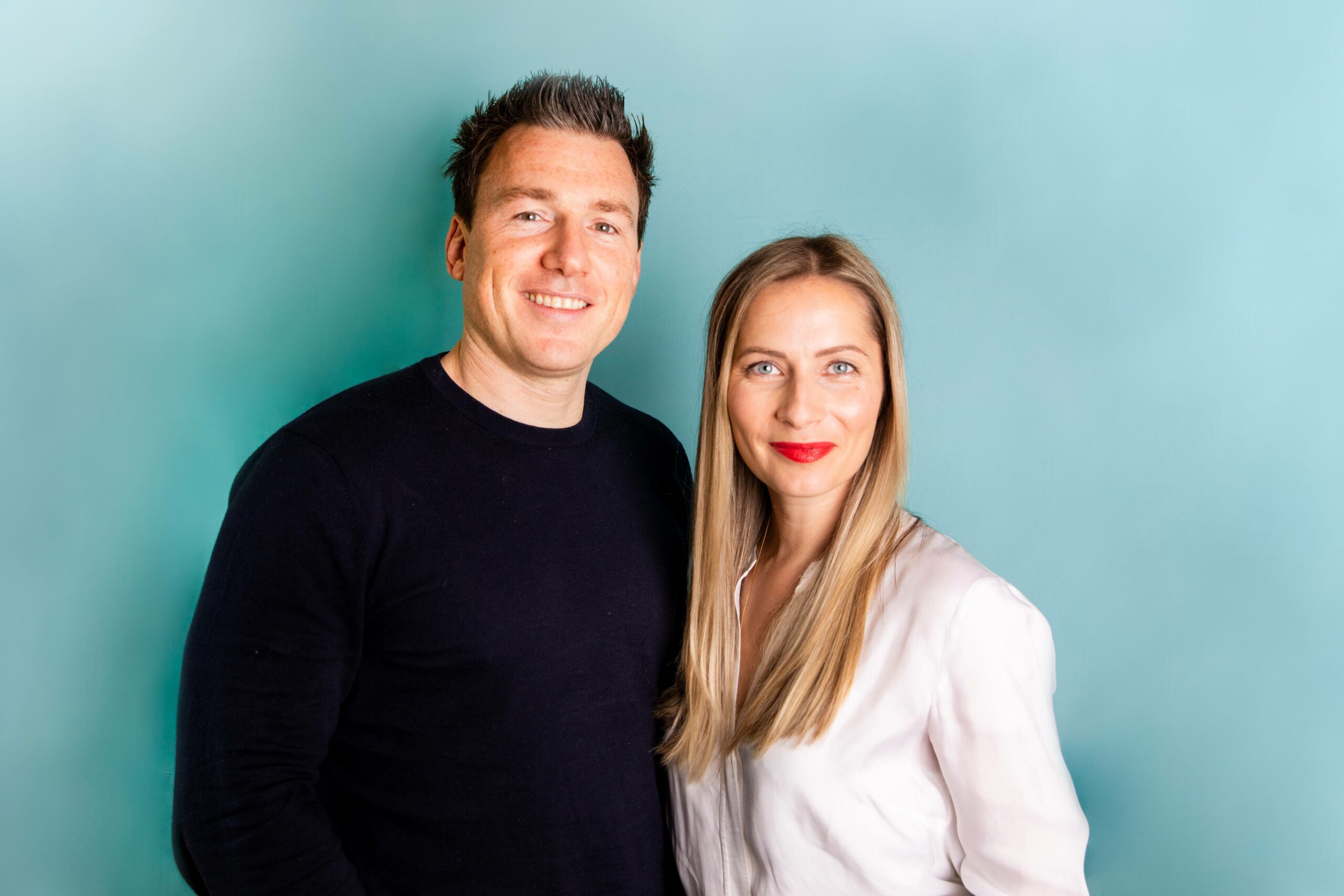
The “skinification” of hair refers to people constructing multistep haircare routines similar to skincare routines and paying close attention to haircare ingredients as they do skincare ingredients. Certainly, in recent years, beauty product shoppers have been exploring what goes into haircare products and makes them effective (or not). With the natural hair movement, Black consumers in particular dug into the hair products right for transitioning away from relaxers and maintaining their hair post-chemical straightening. And, during the pandemic, as consumers fortified at-home haircare regimens due to salon closures, they gravitated to haircare products big on bolstering hair health rather than flashy styling.
The beauty ingredient supplier Croda has identified “hairtellectuals,” heirs to “skintellectuals” and “suntellectuals,” as a rising group spurred by the burgeoning focus on hair health. In a blog post, the company writes, “Whether it be embracing our natural hair styles or caring for over processed hair, the ultimate goal is to keep our hair looking and feeling fabulous.” Croda highlights that sales of conditioners and hair treatments are projected to ascend, with the global market for them registering 7.5% growth in 2021 and expected to reach $886.4 million by 2026.
“We love our positioning with scalp, so I think we will always be scalp heavy.”
Laxton notes skincare and haircare products both elicit emotional reactions. Along with The Inkey List’s Hyaluronic Acid Hydrating Hair Treatment, she mentions Salicylic Acid Exfoliating Scalp Treatment has been a strong seller because its immediate effect resonates with consumers emotionally. She says, “We were getting consumer feedback within days of launching, and we saw Cult Beauty reviews where people were saying, ‘With one use, it literally cleared up my scalp issues.’ That was shocking to understand those results and the emotions it can [inspire in] the consumer.”
Overall, The Inkey List’s business quadrupled last year, according to Laxton. She points out MyInkey, a skincare coaching customer service feature that’s an outgrowth of AskInkey, a skincare advice resource, and AskInkey have been integral to its sales progress. Laxton says, “People are coming to us for a deeper connection and support through their skincare journey.” The Inkey List is available in over 30 countries. Europe and North America are its top markets and generate roughly equal revenues for the brand. In the U.K., The Inkey List is the eighth top skincare brand, per NPD estimates shared by Laxton, and it’s closing in on being a top 10 skincare brand in the U.S.
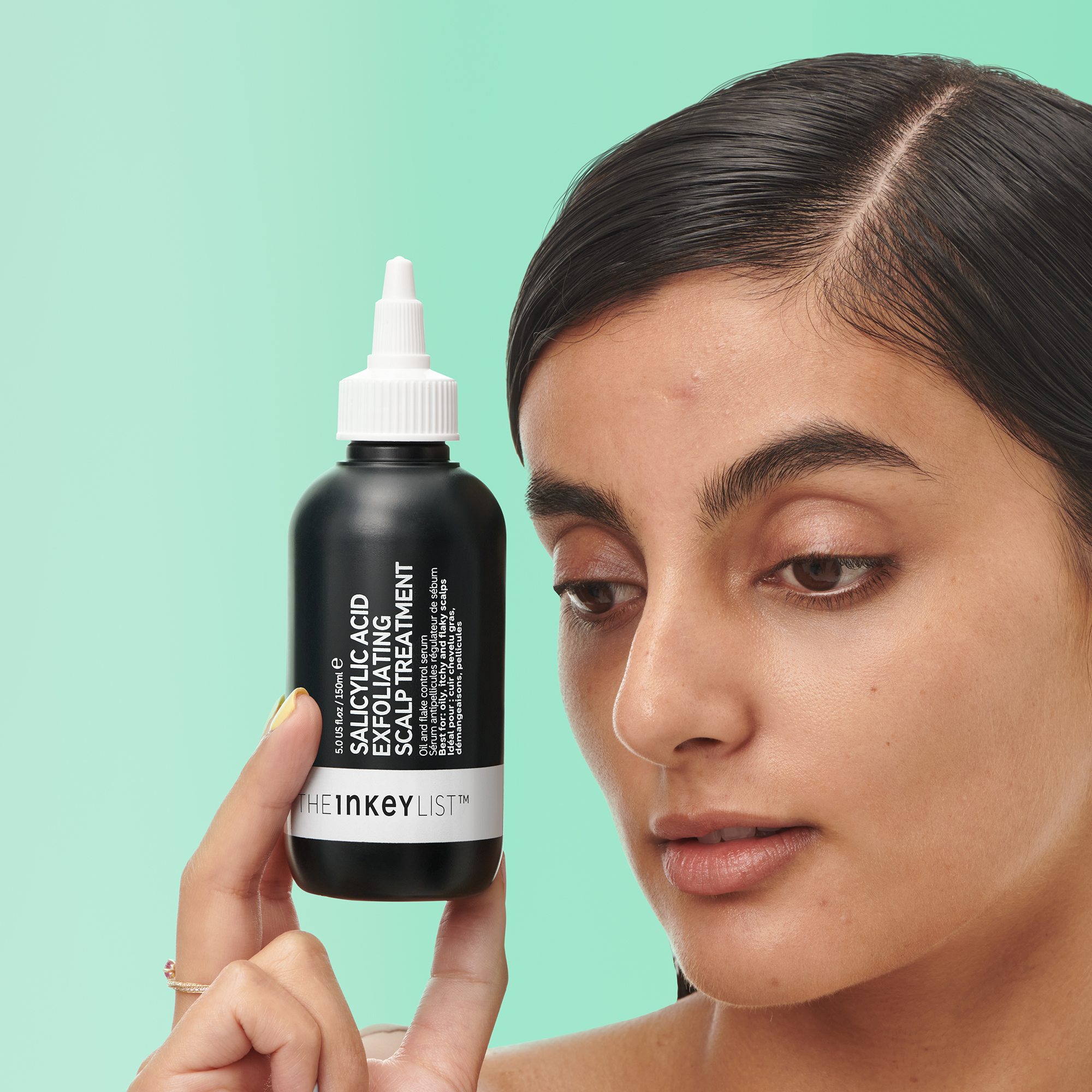
Asked about whether The Inkey List is profitable, Curry replies, “It’s only in the last few months that we are tipping toward profitability.” Unilever Ventures has backed Be For Beauty, The Inkey List’s parent company that could have additional backers relatively soon. “In the next three years, we have highly ambition plans, but we are going to need some more help to do that financially and otherwise,” says Curry. “Whilst we don’t have anything locked and loaded right now, I think something will be in the offing as we move through the year.”
Could the ambition plans include further category extensions? Curry answers affirmatively. “We exist to make things simple to understand and easy to use, and I think many categories in each of the verticals are not easy and are bloody confusing,” he says. “So, at some point in time, we will have a very strong role to play.”

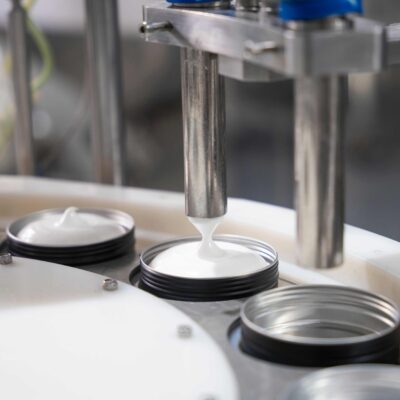



Leave a Reply
You must be logged in to post a comment.